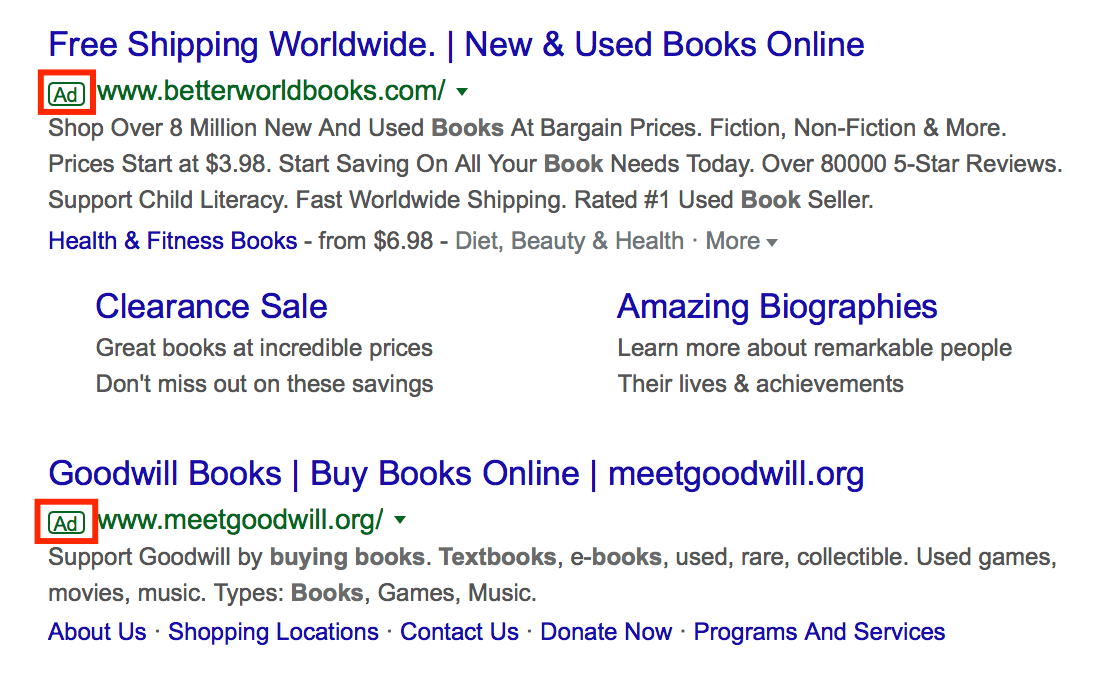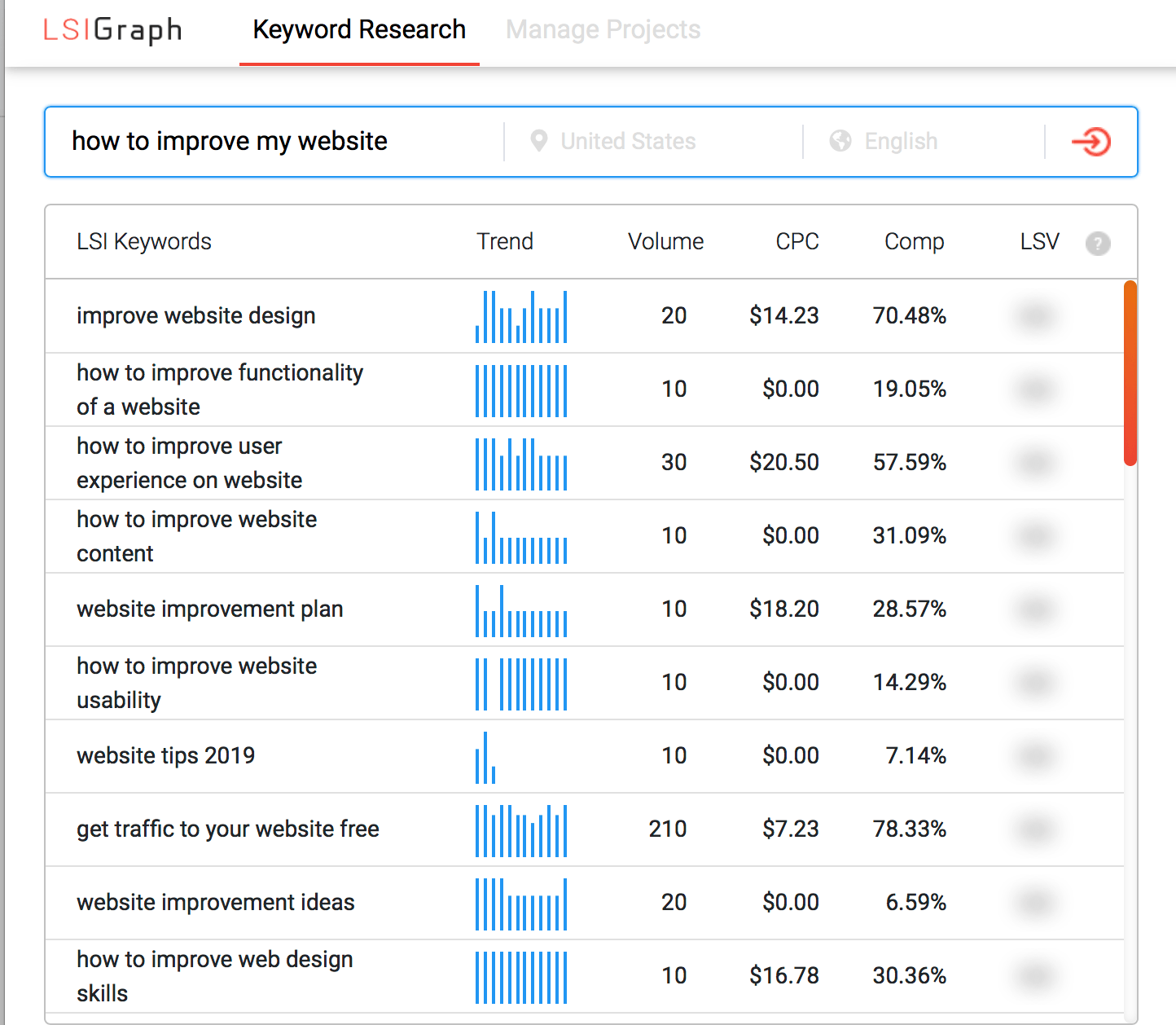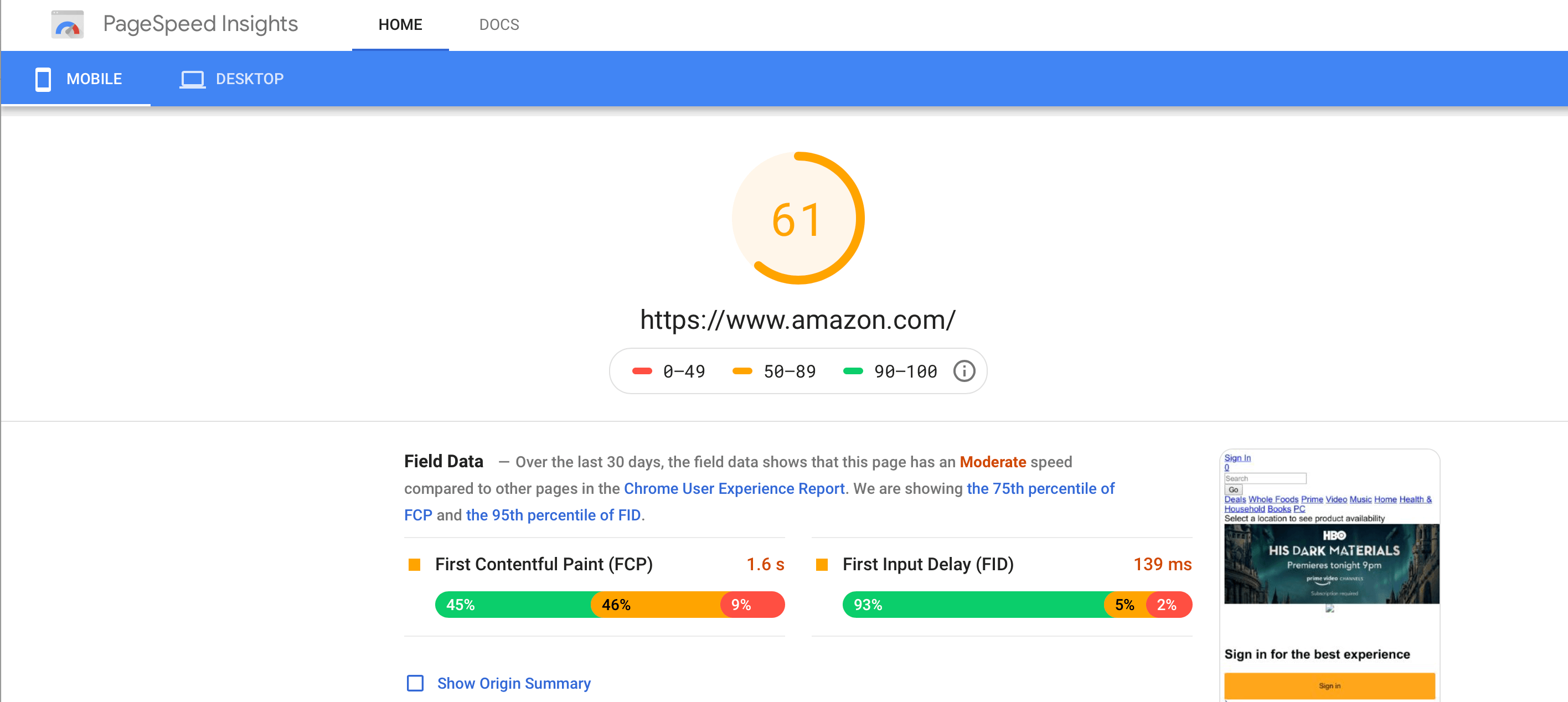-
 10 min. read
10 min. read
-
 Macy Storm
Macy Storm Content Marketing Consultant
Content Marketing Consultant
- Macy is a content marketing consultant with over five years of experience creating content for dozens of industries including home services, recreation, and education. She’s written about every marketing topic under the sun, from SEO to AI to email marketing. Her work has been featured by Search Engine Journal, HubSpot, Entrepreneur, Clutch, and more. In her free time, Macy enjoys crafting, reading comic books, and walking her dog Daisy.
Did you know that 70% of clicked search results are organic? If you aren’t investing in organic search marketing, you’re missing an opportunity to earn more clicks and more valuable website traffic for your business. On this page, we’ll discuss what organic search marketing is, organic search vs. paid search, and how to nail your organic search strategy. If you want to learn more about how organic search marketing will help you grow your business, contact us online to speak with a strategist about our search engine optimization (SEO) services.
What is organic search marketing?
Organic search marketing, a type of organic marketing, improves your website’s ranking in search results through optimizations. When users search, search engines generate organic search results based on your site’s relevancy to a user’s search query. With organic search marketing, you optimize your website to appear in relevant search results.
To do organic search marketing right, most companies invest in SEO services. SEO services help improve your site’s ranking in search results through on- and off-page optimizations. These services will help your pages appear higher in valuable search results.
If you want people to find your business through search, you must rank on the first page of results. Seventy-five percent of people don’t go past the first page of results. Without organic search marketing, people will miss your business, hence why WebFX provides USA SEO Services for your business.
Why is organic search marketing important?
Why should you care about ranking on the first page of search results?
Well, obtaining organic traffic is extremely valuable. This traffic contains people that want your products or services. They search for your business using keywords related to your brand, industry, or products and services, which means they have an interest in your organization.
Organic search marketing helps you drive organic traffic to your website. This traffic can turn into leads and conversions for your business. It’s valuable for helping your company grow online and even offline.
If you optimize your site enough to get to the front page of multiple search results, you build credibility around your business. People are more likely to choose your company because they believe you fit their search query. Building your presence in search results helps you earn more credible leads for your company.
Looking for an all-in-one SEO audit tool? You’ve found it
SEO checker provides data on key metrics to give you:
- Complete SEO score
- Site Speed Analysis
- Content Grade
- and more.
Does organic search marketing work immediately?
Not exactly. Organic search marketing takes time to show results. Optimizing your page won’t get you to the top of search results overnight.
Organic SEO is an ongoing process, so you must continually optimize your website to help you improve (and maintain) your presence in search results. If you optimize your site and then abandon organic search marketing, competitors will overtake you in search results. Though this strategy takes time to develop results, it’s well worth the effort.
Over 40% of revenue gets captured by organic traffic. By taking the time to optimize your website for search engines, you’ll attract more leads and revenue for your company.
Organic search marketing vs. paid search: What’s the difference?
As you research organic search engine marketing (SEM), you’ll see an abundance of information about paid search. You may wonder, is it better to optimize for organic or paid search? Truthfully, investing in both methods will help you gain more visibility in search results and reach more interested leads.
Let’s break down paid and organic search and help you see how they differ from one another.
Placement
Paid search produces pay-per-click (PPC) ads at the top of search results. These listings appear with the word “ad” to indicate they’re paid content.  Paid listings appear above and below the organic listings.
Paid listings appear above and below the organic listings.
You will never see them in the middle of organic search listings.
Cost
Ranking in organic search results is free. It doesn’t cost your business anything to appear in organic search results or have someone click on your website in organic search results. With paid search, you pay to appear in specific search results.
Your business will pay a set amount each time someone clicks on your ad. Essentially, you’re paying to advertise your website in the search results so that people find your business.
So, what can you expect when it comes to SEM pricing? It depends on several factors, like whether you hire an agency, your industry, and the scope of your needs.
But on average, businesses typically spend around $9000 – $10,000 on search engine marketing.
Control over pages
With organic search engine marketing, you have less control over which pages appear in the search results. While you can integrate keywords on your site and optimize your pages to try and rank for specific phrases, the search engine determines where your page appears. You can try to “tell” Google which pages match different searches, but ultimately, Google will decide.
With PPC services, you have more control over where to send leads. When you create your paid ad, you decide on the landing page you want users to see. This process allows you to control where your audience ends up and the information they see.
A significant difference between organic search and paid search is the destination. Organic search drives leads to keyword-related pages on your website, while paid search drives users to a search-specific landing page.
Timing
Organic search takes time. It takes time to develop an effective campaign, implement it, and see results.
It may be months before you see any changes or positive results from your optimizations. With paid search, you see results immediately. You know if people see your ad, click on it, or convert.
Based on these results, you can optimize your ad for immediate changes to drive even better results.
How to do organic search marketing
If you’re ready to start doing organic search optimization, check out these three tips.
1. Find the right keywords for your organic listings
The first step in mastering organic search marketing is choosing the right keywords. Keywords trigger your listings to appear in search results. To help you reach the right people in the right search results, you must find relevant keywords.
First, it’s essential to understand how your audience searches for your products or services. What phrases and keywords does your audience use when searching? When you know how they search, you can optimize for the right keywords.
To help you find the best keywords for your listing, conduct keyword research. Keyword research allows you to generate a list of relevant keywords for each page on your website. Comb through these keywords to find the ones most relevant to your campaign.
 Once you have your keywords selected, you’ll integrate them into your site. Adding them to relevant pages helps Google recognize the context of your page and rank you in the relevant search results. By choosing the right keywords, you’ll help your business rank in valuable search results.
Once you have your keywords selected, you’ll integrate them into your site. Adding them to relevant pages helps Google recognize the context of your page and rank you in the relevant search results. By choosing the right keywords, you’ll help your business rank in valuable search results.
2. Do on-page optimizations
If you want to do organic search optimization right, you must optimize your pages to appear in more relevant search results. On-page optimization will help your site rank better in search results.
Let’s take a look at a few ways you can optimize your website:
Make SEO-friendly URLs
If you want your site to rank higher in the search results, you must make your URLs SEO-friendly. Your URL is an integral part of your page.
You want search engines to crawl your URL and understand the context of your page. A URL that looks like “officesupplies.com/category=djw00228/55662/c-767b/notebooks” does not tell search engines, or your audience, anything about your page. This URL is not SEO-friendly because it’s a composition of random numbers and letters that mean nothing to the search engine or users.
On the other hand, a URL like “officesupplies.com/notebooks/college-rule-notebooks” is clear and concise. Your audience knows that this URL directs them to college rule notebooks, and search engines can read this URL easily.
Optimize title tags and meta descriptions
Your title tag and meta description are crucial components of organic search marketing. These two components are the first thing your audience sees in search results.
If you want to drive organic traffic to your website, you must optimize these two elements better than your ranking competitors. Your title tag is the heading your audience sees in search results.  To improve your ranking, keep your title tag within the limit, so it doesn’t get cut off in the search results.
To improve your ranking, keep your title tag within the limit, so it doesn’t get cut off in the search results.
You can see if your title tag length is right by using title tag checkers. Additionally, you’ll also want to optimize your meta description. Your meta description is the small blurb that appears below your listing.
 To create a compelling meta description, keep it short but descriptive. You’ll want to stay within the pixel limit but provide your audience with a preview of your article. It will help you create an effective organic SEO listing for your audience.
To create a compelling meta description, keep it short but descriptive. You’ll want to stay within the pixel limit but provide your audience with a preview of your article. It will help you create an effective organic SEO listing for your audience.
Improve page load time
A fundamental part of SEO is your page load time.
Your audience doesn’t want to wait for your page to load. If you don’t have a fast-loading website, your audience will bounce from your pages, and that action will negatively impact your ranking. You can use Google PageSpeed Insights (for free!) to help you see how fast your page loads and where you can make improvements.
 If you aren’t sure how to implement optimizations to improve your page load time, you can invest in page speed services from a digital marketing company like WebFX.
If you aren’t sure how to implement optimizations to improve your page load time, you can invest in page speed services from a digital marketing company like WebFX.
3. Create content
Content is a crucial component of organic search optimization. When you create content, you create opportunities for leads to find your business and check you out. If you want to see success with organic search optimization, create a content strategy.
To start, figure out topics for your content. Keyword research will help you find ideas. Once you have your topic, you’ll choose your format.
There are numerous content formats available, including:
- Blogs
- Videos
- Infographics
- Ebooks
- Podcasts
- Guides
After you choose your format, start creating! Make sure your content informs your audience and helps them learn. It’s best to develop in-depth pieces that provide searchers with all the information they need.
By creating valuable and informative content, you’ll help improve your search ranking and drive more relevant organic traffic for your business.
WebFX helps companies like yours reach their business goals
“Our marketing department has a lot of key performance indicators that WebFX has always helped us achieve… WebFX has always worked hard to make sure that we’re getting what we need out of the partnership, not just what may seem like the best result.”
HydroWorx
See Case StudyStart investing in organic search marketing today
Organic search marketing will help you drive more valuable traffic to your website. You can turn this valuable traffic into leads and revenue for your business. If you’re looking to grow your company, organic search marketing will help you achieve this goal.
At WebFX, we have over a decade of experience in organic search marketing. We’re a top full-service digital marketing company that specializes in SEO and the best Fort Myers SEO agency. We’ll help you optimize your organic presence to maximize your reach and drive valuable traffic for your site.
Already, we’ve helped our clients earn more than $10 billion in revenue in the past five years. If you’re ready to see what it’s like to earn more revenue and drive more valuable traffic for your business, contact us online or call us today at 888-601-5359 to speak with a strategist about our organic SEO services.
-
 Macy is a content marketing consultant with over five years of experience creating content for dozens of industries including home services, recreation, and education. She’s written about every marketing topic under the sun, from SEO to AI to email marketing. Her work has been featured by Search Engine Journal, HubSpot, Entrepreneur, Clutch, and more. In her free time, Macy enjoys crafting, reading comic books, and walking her dog Daisy.
Macy is a content marketing consultant with over five years of experience creating content for dozens of industries including home services, recreation, and education. She’s written about every marketing topic under the sun, from SEO to AI to email marketing. Her work has been featured by Search Engine Journal, HubSpot, Entrepreneur, Clutch, and more. In her free time, Macy enjoys crafting, reading comic books, and walking her dog Daisy. -

WebFX is a full-service marketing agency with 1,100+ client reviews and a 4.9-star rating on Clutch! Find out how our expert team and revenue-accelerating tech can drive results for you! Learn more
Try our free Marketing Calculator
Craft a tailored online marketing strategy! Utilize our free Internet marketing calculator for a custom plan based on your location, reach, timeframe, and budget.
Plan Your Marketing Budget

SEO Success with KOA

Proven Marketing Strategies
Try our free Marketing Calculator
Craft a tailored online marketing strategy! Utilize our free Internet marketing calculator for a custom plan based on your location, reach, timeframe, and budget.
Plan Your Marketing Budget
What to read next







